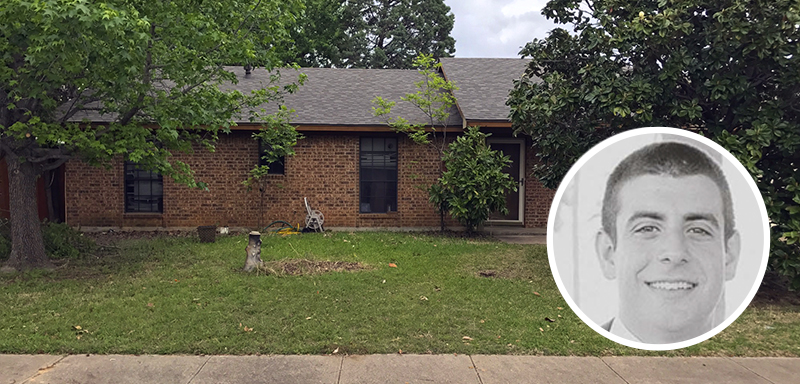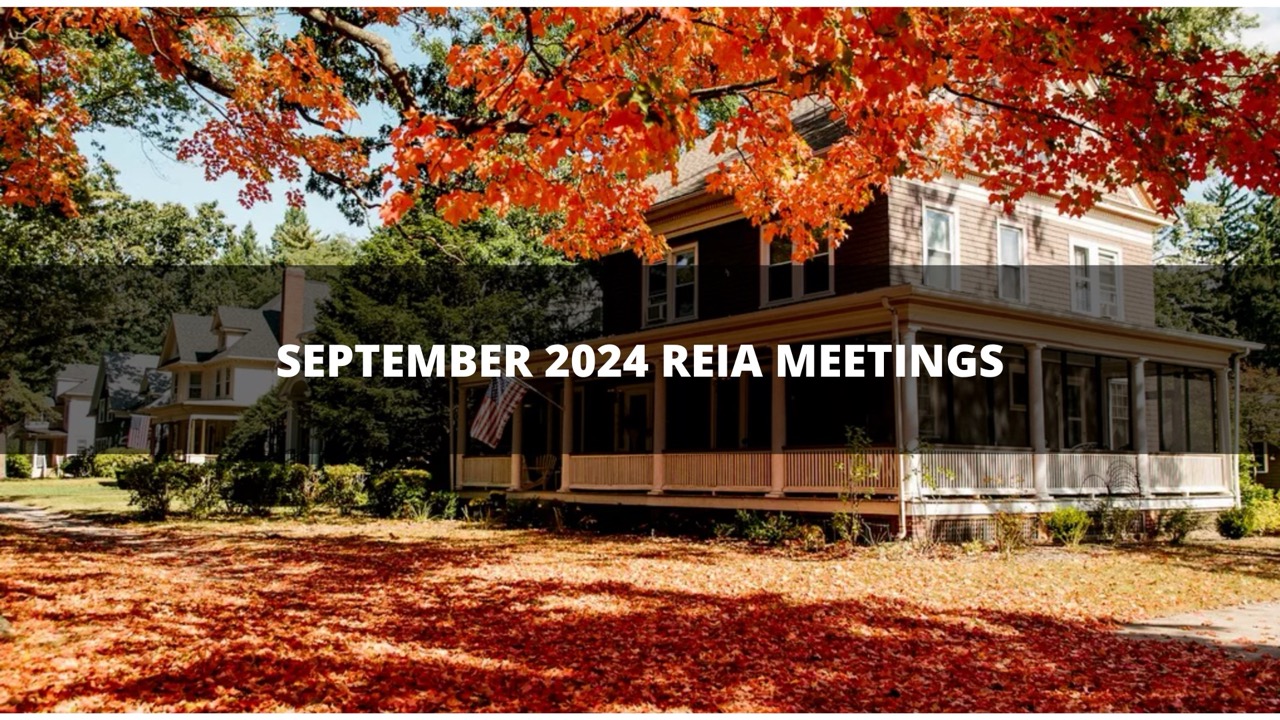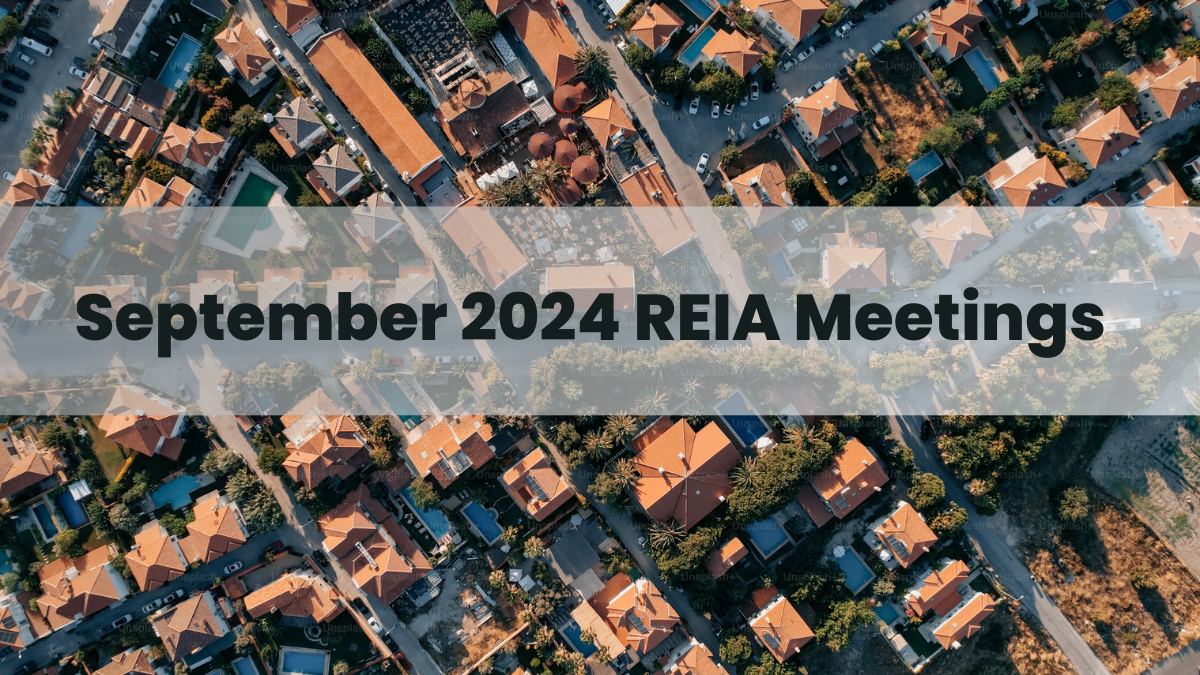4 to 6 hours a Week Can Change Your Life [Adrien’s Story]
All of Adrien’s friends jumped off the proverbial real estate investing bridge, so he did too. He took a leap four years ago and has no regrets. Adrien is currently working to grow his rental portfolio by doing as many Fort Worth/Dallas investment property deals as he can. His strategy is smart… Do a flip, and then use the profits to buy a couple rental properties. Rinse and repeat.
Adrien uses hard money loans to fund his deals. The relationships he’s built with hard money lenders allows him to close quickly on a deal, which is a huge plus. BUT, this type of loan means he needs to move quickly on a rehab to minimize the cost of the loan.
He utilizes his connections (Adrien’s wife is a realtor!) and resources to find and complete a deal in timely manner. Adrien works a full-time job, and at this point, only works on his real estate investing business 4 to 6 hours a week. Yes, only working 4 to 6 hours a week can lead to success! This is totally manageable for Adrien as he builds his rental portfolio.
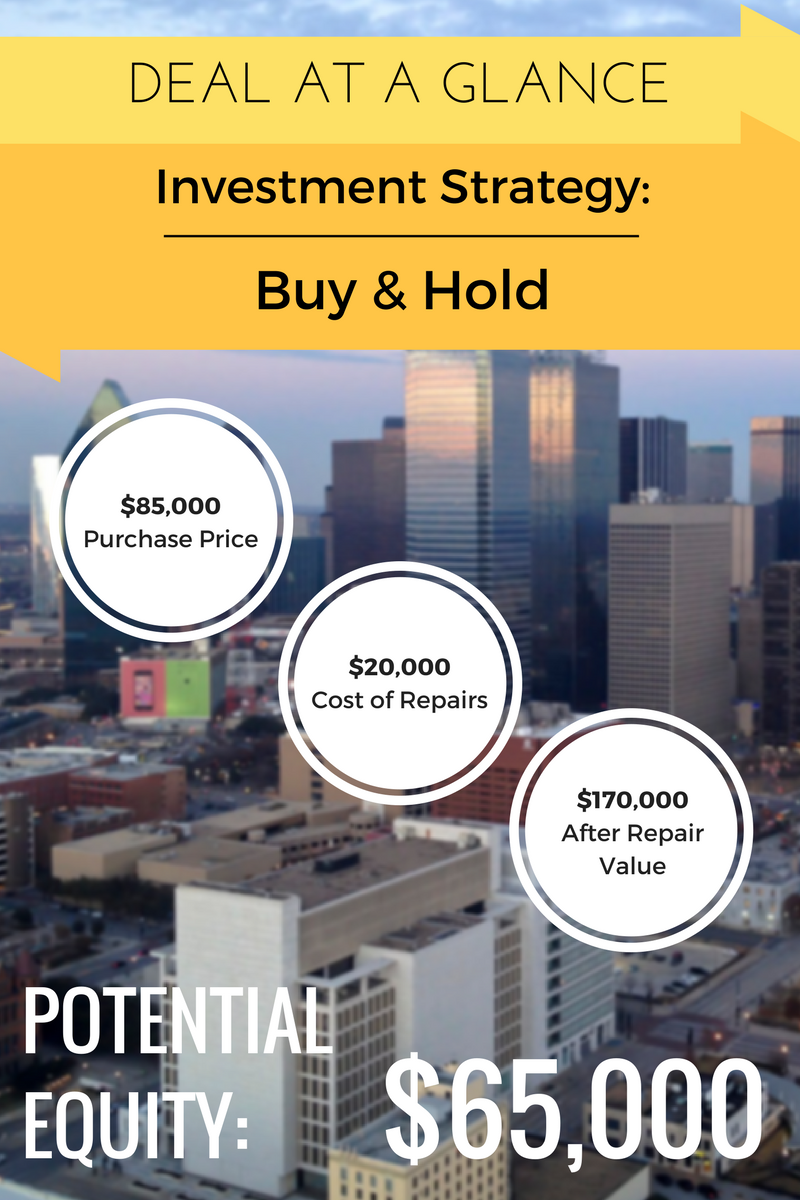
Listen to our conversation with Adrien to learn how to he got started as an investor, his criteria for a deal, and how he uses the MyHouseDeals website, plus…
- How to evaluate the rehab/construction costs
- Why doing a rehab quickly is better than doing it cheaply
- Exactly what to look for during the first property walk-through
NOTE: Since Adrien is a Premium Elite member, he received a FULL refund of his up-front membership fee for simply doing a deal! Find out more about our Premium Elite membership here

Tell Us About Yourself…
How did you get into real estate investing?
I first got started with real estate investing in 2013. Some of my close friends were doing it, and I’d always had an interest in flipping houses. In 2013, I bought my first house with help from a couple of friends. The flip was a success. From then on out, I started doing my own thing. I’ve done quite a few properties since then.
It was definitely a leap of faith to get started in the industry. I had some rehab experience before since I grew up working with my dad. I also had some construction experience. Actually, I was working full-time at the time of the first flip. From 8am to 5pm, I would work my IT job. Then from 5pm to about one in the morning, I would go to the house and rehab it. I would lay tiles, paint, and work on the sheetrock.
It was a long few months. The first flip took me about four months since I did most of the rehab myself. I didn’t have an option to shorten the process. So, that flip was how it all started for me.
How did you finance that first Fort Worth/Dallas investment property deal?
I got a hard money loan to finance the house. I’d done some research on hard money loans and then found a lender who was willing to lend on that specific property.
I actually didn’t have that must cash on hand to pay the fees involved with the loan. I think I had maybe between $5,000 and $10,000 cash to pay for the rehab and the fees associated with it. Like I said, the whole process was a leap of faith for me so I knew I had to make it work.
What do you like about using hard money as opposed to other financing strategies?
I’m not going to say that it’s the best financing strategy. There are some pros and cons, for sure. With hard money, you can close on a deal really quick. I’ve built a consistent relationship with a couple of lenders. Once you build that kind of relationship with the lenders, they have an idea if you know how to evaluate properties.
I try to be as close as possible in my numbers when I’m sending the lenders a price spreadsheet to show them what I think the rehab will cost. That makes the underwriting easier for the hard money lenders. Once I built that trust, I can usually close pretty quickly because the lenders know that they can trust the numbers that I’m giving them.
What were your next steps after your first deal?
My goal in real estate investing was to build a rental portfolio. I made a good amount of money on the first flip. I turned the money that I made from that first flip into three rental properties. Then I made sure that I saved enough to do another flip. I would just do that back and forth – I’d do a flip, build some rentals, and then do another flip to fund the next rentals going forward.
How many properties do you have now?
I’ve sold some of the rentals, but right now I have four properties. Last week, I sold a couple rentals but I’m actually focusing on flips right now.
How do you decide whether you’re going to use a property for a flip or rental?
I look at future value. Is this an area that has great schools? Are people dying to live in this area? Are property values rising? I also look for demand. Maybe a corporation has moved nearby and there’s a lot of demand for housing in the area. The demand will keep the value of the house increasing and keep the desire for someone to live there constant. If this is the case, then I use the property for a rental.
If it’s an area that isn’t necessarily bad but just doesn’t have the same level of demand, then I know that it would work better as a flip. Typically those factors determine my decision. Also, the numbers (asking price, rehab costs, and ARV) have some weight too. Some deals just work better as a rental than as a flip. It’s a combination of that future value of the asset and if the numbers work that make my decision.
How do you get tenants in the house quickly?
My wife is a real estate agent, so I have a little bit of an advantage there. She’ll list the property on the MLS, which automatically lists the house on Zillow and Truila and all of those other third party listing sites. We haven’t had an issue finding tenants yet. I think there’s going to be a large demand for tenants and rental houses in the Dallas/Fort Worth area. I think it’s going to be that way for a while. We haven’t had any issues getting good tenants in there quickly.
How many deals do you do a month?
It depends. I don’t have unlimited capital, so I can only do a few deals right now. I have two properties going on right now. It might be a month or two or three before I get another two. It’s normally more sporadic for me. I’m picky with what I buy. I’m not trying to do a lot of volume.
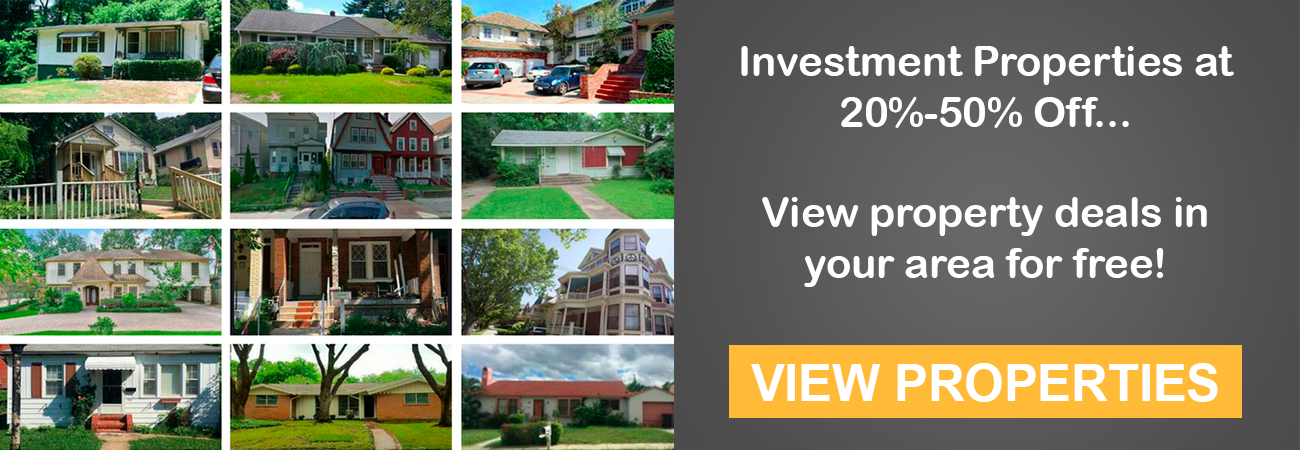
Is your goal to become a full-time investor?
I’m still working my full-time IT job right now. I’m just playing real estate investing by ear for now. I think that maybe ultimately, my goal is to do full-time investing. But as long as I continue to invest while I’m working full time and manage not to lose my mind too much, then that’s what I’m going to do.
Nowadays, I spend normally 4 to 6 hours a week to go check on properties, meet vendors or contractors, etc. Most of my jobs now, I’ve subbed out and I’m in a more project management based mindset.
Tell Us About the Deal…
What were you looking for when you found the deal on MyHouseDeals?
I spend a lot of a time on MyHouseDeals, just looking at whatever is posted. I have a criteria that I normally follow: 3 bed/2bath, 2 car garage, 1980’s and up. That’s usually what I’m looking for. The house I purchased from MyHouseDeals met that criteria.
Do you have a contractor you regularly work with?
Yes, I do. Like I said, my wife is a realtor, which helps me out a lot. A lot of the times I’ll send her out to go meet the seller or meet a contractor or look at a house and take pictures. She’ll upload it to Dropbox and then I can look at it on there from work. I can then make evaluations on the rehab. Also, I usually send a contractor out to give me a rough estimate of what it’s going to take. Then I go from there to decide whether I’m going to purchase it or not.
What are you looking for when you walk through a property for the first time?
I’m mainly looking for any major issues. Is the roof system damaged? Does it need a little repair or major repairs? Does the foundation seem to be moving? We also look at the HVAC system and water heaters. From there, after the main systems of the house are checked off, we start looking at cabinets and bath tubs. Are we going to have to re-tile? I look at the general cosmetics and how much is involved, as well as the exterior of the house. Does the exterior need any siding repairs or brick repairs?
So normally we just look at the overall house. We mainly focus on the major, more expensive items. Then normally, cosmetic repairs are almost all around the same price. Most houses are going to need new paint, new flooring, new carpet, etc.
My rehab evaluation is normally based on experience. If I have the square footage of the house, I can pretty much estimate in my head what it’s going to take to get the house painted, what the roof’s going to cost, etc. It takes a little bit of experience working with contractors who are pretty consistent in their pricing. For example, I know what a 1500 square foot house is going to cost to get painted and texture.
I don’t really write down numbers line by line to get a repair estimate. Sometimes, I’ll write the repairs down on my phone to just get down an idea of the major costs. Then if I buy it, I’ll do a more detailed spreadsheet of what it’s going to cost.
Did you have any surprises while rehabbing the property?
Luckily, with everything we saw on the initial walk-through, we were right. The house needed a new roof. We decided to do a full cosmetic renovation and the house also needed some siding repair and a new AC system. No surprises yet, so fingers crossed it stays that way.
Have you had to deal with any surprises in the past?
Yes, but not necessarily from missing something on our walk-through. The surprises were more involved with dealing with contractors. For example, there would be mistakes on the part of the contractors or guys not showing up or leaving the job, etc. But that’s the construction industry. You always have to deal with that. I’ve experienced a few problems here and there with that sort of thing. Nothing too major though, yet. Hopefully, no surprises happen at all.
When you encounter a surprise with a contractor, how do you deal with it?
I’m in the mindset of just pushing through. I won’t fight with somebody. I’m not going to waste a week of time fighting to get somebody back out there. I’ll just grab somebody else and send them out there to finish the job. Getting things done quickly is really one of the most important things for me. Typically because I’m using hard money, it’s pricey every day that the house is just sitting there. So when we have issues with contractors, we just press on. We pay them what they need and we just go to the next guy.
Give Us Some Advice…
What advice do you have for new investors?
I think the biggest thing is learning how to evaluate properties. Don’t just believe what a wholesaler or whoever’s selling the property says it’s worth. Know your construction costs. A good deal can turn bad really quick. In the Dallas/Fort Worth area, margins are getting a lot smaller. It’s getting tighter and tighter to make money doing flips. That construction cost is critical.
If you’re a person who has no construction experience and has no idea how to estimate rehab costs, don’t just try and guess. Get someone to help you. Get a contractor to give you a bid. Spend time with that contractor. Figure out how the contractor is calculating costs and learn from that contractor.
Sometimes with these deals, you don’t have time to send out a contractor and vendor and then get quotes. These deals move really quick. You’ve got to be able to be skilled enough to go out, estimate rehab, and be accurate with those estimates.


